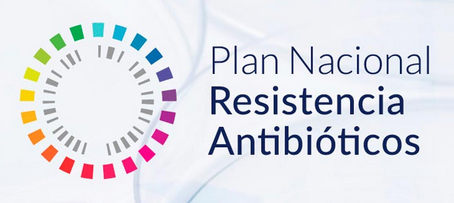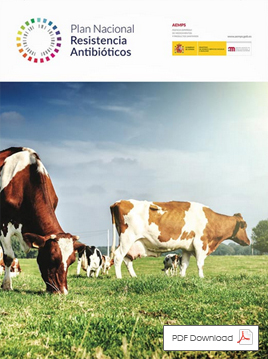Strategic action plan to reduce the risk of selection and spread of antibiotic resistance in Spain
Since the introduction of antibiotics in clinical practice, in the early 1940s, they have become essential medicines for treating most bacterial infectious diseases in both humans and animals.
The development of antimicrobial resistance, especially the emergence and spread of multi-resistant bacteria and the lack of alternative treatments, are two of the biggest problems of public health and animal health needs to be addressed today.
Although there are many factors that favor the selection and spread of resistance to antibiotics, improper and indiscriminate use of them is one of the main factors contributing to this phenomenon by the poor control of the bacterial infection.
Antimicrobial resistance is a serious health problem not only for Europe but also worldwide as they affect different sectors such as, for example, human health, animal health, agriculture, environment and trade.
Selection and spread of antimicrobial resistance is a complex and multifactorial problem, with multiple affected. Because of this complexity, the implementation of isolated or poorly coordinated action is not effective, being essential to the establishment of programs at national, multisectoral responses to deal with probabilities of success control risk derived from the development of resistance.
AIM
The development of antimicrobial resistance, especially the emergence and spread of multi-resistant bacteria and the lack of alternative treatments, are two of the biggest problems of public health and animal health needs to be addressed today.
Although there are many factors that favor the selection and spread of resistance to antibiotics, improper and indiscriminate use of them is one of the main factors contributing to this phenomenon by the poor control of the bacterial infection.
Antimicrobial resistance is a serious health problem not only for Europe but also worldwide as they affect different sectors such as, for example, human health, animal health, agriculture, environment and trade.
Selection and spread of antimicrobial resistance is a complex and multifactorial problem, with multiple affected. Because of this complexity, the implementation of isolated or poorly coordinated action is not effective, being essential to the establishment of programs at national, multisectoral responses to deal with probabilities of success control risk derived from the development of resistance.
AIM

Develop a "strategic and action plan to reduce the risk of selection and spread of resistance to antibiotics" covering human and veterinary medicine, to reduce the risk of selection and spread of RAM.
This plan will comply with the Communication from the European Commission, the November 17, 2011, by which the Member States an action plan on antibiotic resistance is requested, as well as the conclusions of the EU Council, the June 22, which calls for a joint approach.
This communication from the European Commission, in paragraph 29, calls on Member States to develop and implement, national strategies or action plans to develop the following:
This plan will comply with the Communication from the European Commission, the November 17, 2011, by which the Member States an action plan on antibiotic resistance is requested, as well as the conclusions of the EU Council, the June 22, which calls for a joint approach.
This communication from the European Commission, in paragraph 29, calls on Member States to develop and implement, national strategies or action plans to develop the following:
- Develop and implement national recommendations on the treatment of humans and animals with antibiotics to ensure a responsible and rational use.
- Limit the use of critically important antibiotics to cases where microbiological diagnosis and susceptibility testing has determined that it will not be effective any other antimicrobial agent.
- Limit the use of prophylactic antibiotics to cases with defined clinical needs.
- Encourage antibiotic treatments are based on microbiological diagnosis and susceptibility performing.
- Identify, promote and support national monitoring networks and monitoring of antibiotic resistance in pathogenic bacteria, zoonotic and indicator as well as data collection network consumption of antibiotics in humans and animals.
- Promote surveillance systems are effective and that meet both the human health sector such as animal health, with the aim of collecting timely data, and are comparable between sectors and Member States.
- Identify and promote alternative and / or complementary prevention and treatment of bacterial infections in both human and animal health measures.
- To promote animal health by preventing disease and improving the hygiene measures and promote reducing the need for antibiotics.
- Prevent and control related to health care (IRAS) infections.
- Develop a strategic plan of communication, training and education.
- Promote the effective implementation of national legislation to prevent the illegal dispensing of antibiotic agents both in the field of human health and the veterinarian.

